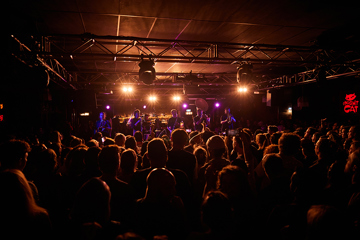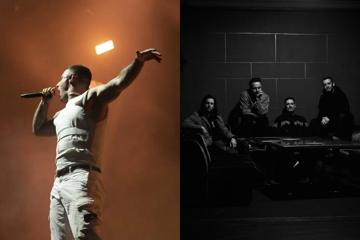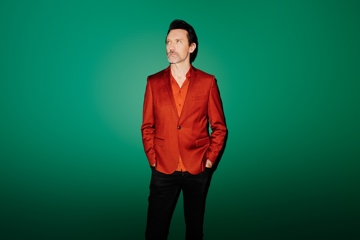Bottoms Up
"I think we more emulated British bands to begin with."
Back when Melbourne Celtic Punk exponents Mutiny kicked off in 1991 there was basically no one else covering that now well hewn terrain. Other bands had used similar instrumentation and touched upon Australia's colonial past but they were coming from different places, which meant that Mutiny were largely left to forge their own way forward from the get-go.
“Yeah, I think we firmly took our own path,” founding member Greg Stainsby reflects. “We were part of the political punk scene that was happening, basically the tail-end of the squatting scene from the '80s. Chris [Patches – vocals] used to sing in a thrash band and me and Alice [Green – bass] were in a ska-punk band, but we sort of toyed with the idea of doing folk music, and we listened to some British bands that were doing that sort of thing.”
Mutiny's songs possess a distinctly Australian feel, much of the content rooted in our convict and colonial past, but Stainsby explains that this wasn't always the case. “That was slightly gradual,” he offers. “I think we more emulated British bands to begin with, and then when we went to Europe it was evident how interested they were in how Australian we sounded, so we started writing these songs set either nowadays in the streets of Melbourne or about historical rebellions and things. We listened a bit to bands like The Pogues when we started, but we really came from this crusty punk scene so it wasn't until we started playing folky music and started getting reviews saying that we sounded like The Pogues that we even listened to them properly! Our most recent album Co-Op Brewery (2006) has got a Pogues influence and deserves the comparison, but for our first 15 years I think it was just that people had nothing else to compare us with.”
Stainsby attests that he had a great time trawling through the band's past for retrospective Drink To Better Days. “I scanned hundreds of flyers and photos to find the best representation of each era of the band, and then I thought that I'd write the story of the band but then I thought, 'We're too underground and it would be a bit pretentious to write a book about us', so I just tried to make the photos show where we were at in different years. There's been a few different formats of Mutiny – in the '90s there were three women and two guys and we had a fiddle and it was a fun sort of anarcho-punk band, and then in the 2000s we were a bit more blokey and had the piano accordion and more of a polka vibe. Now it's like we've got the best of both worlds!”
Don't miss a beat with our FREE daily newsletter







